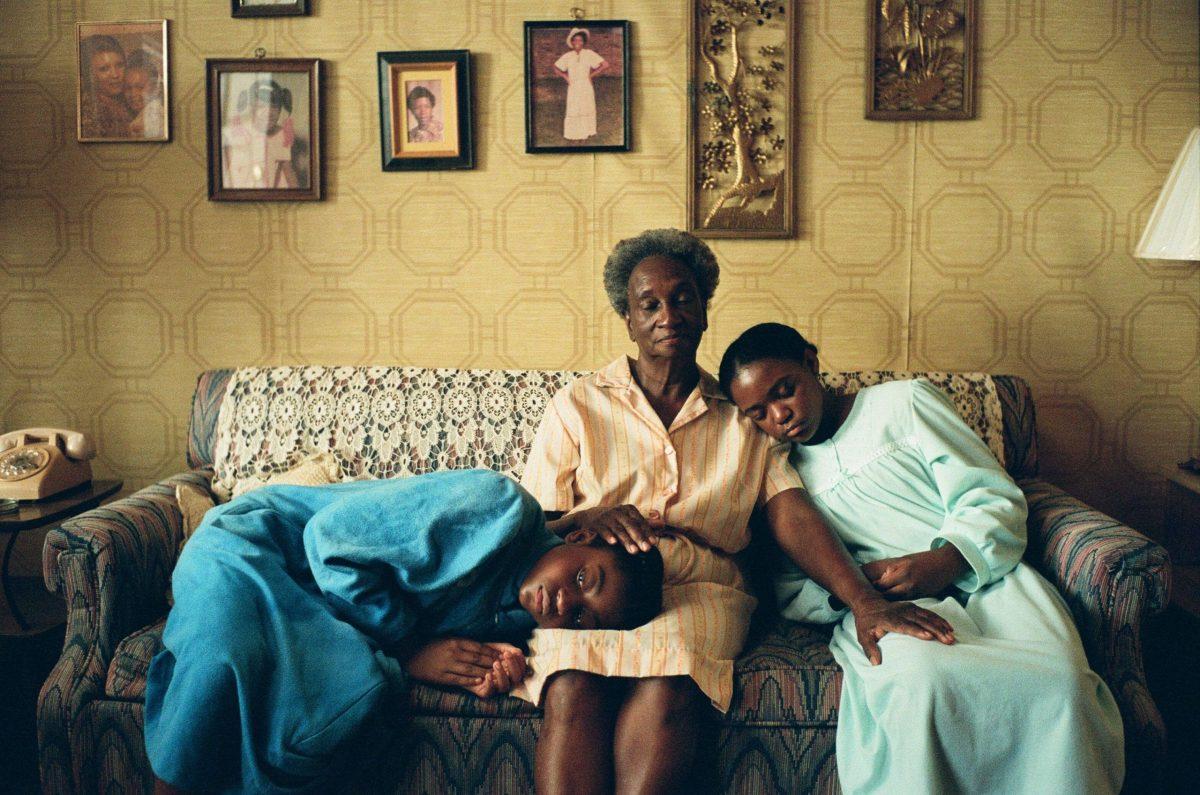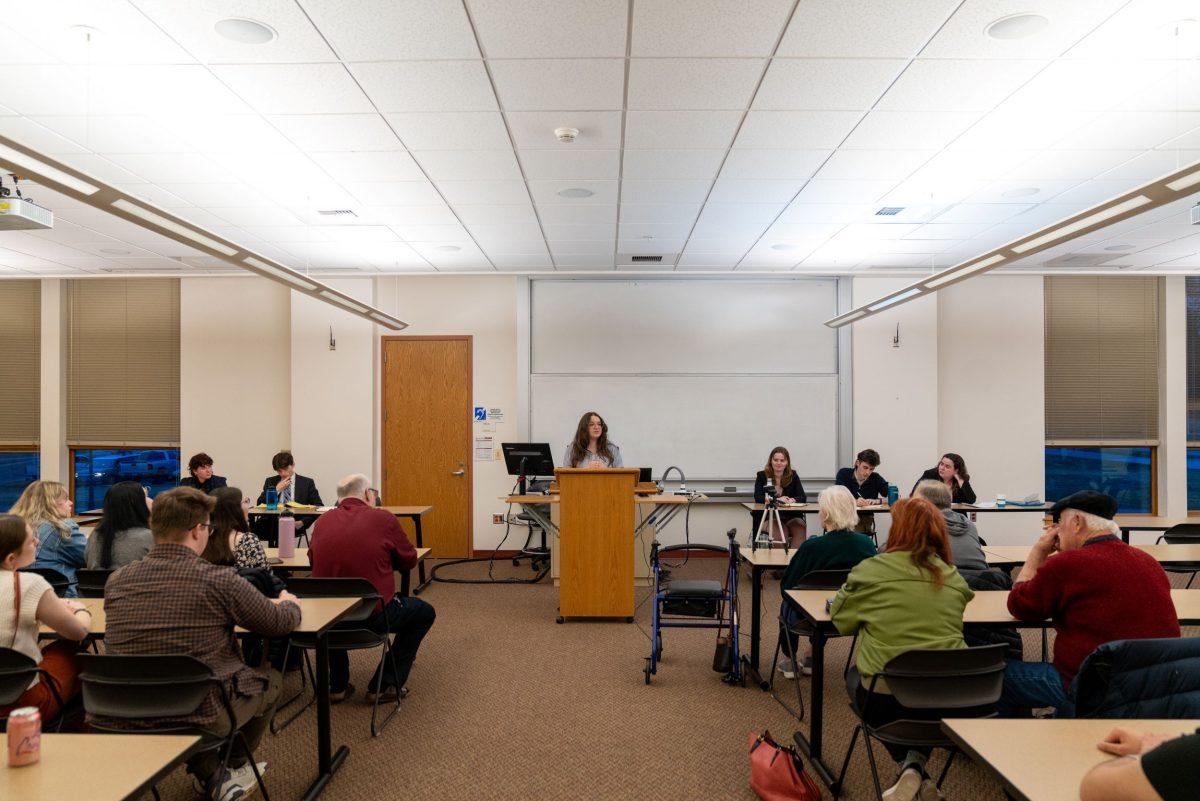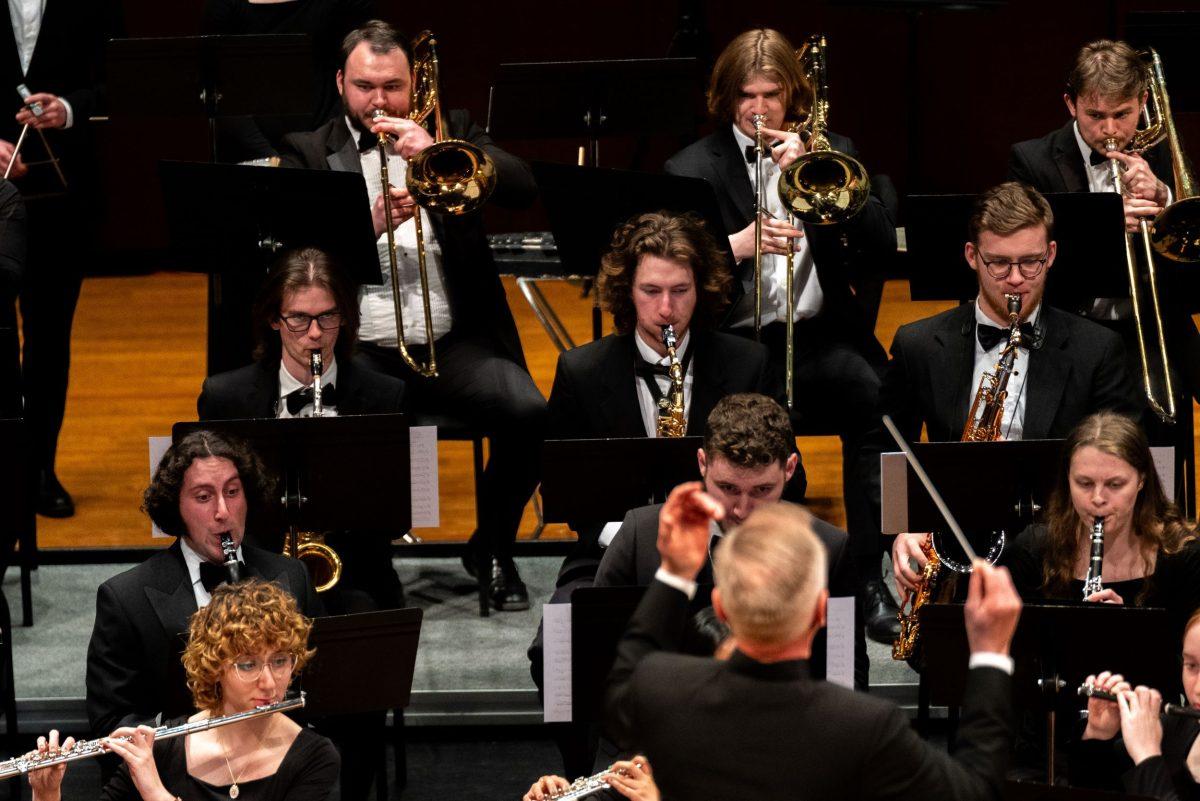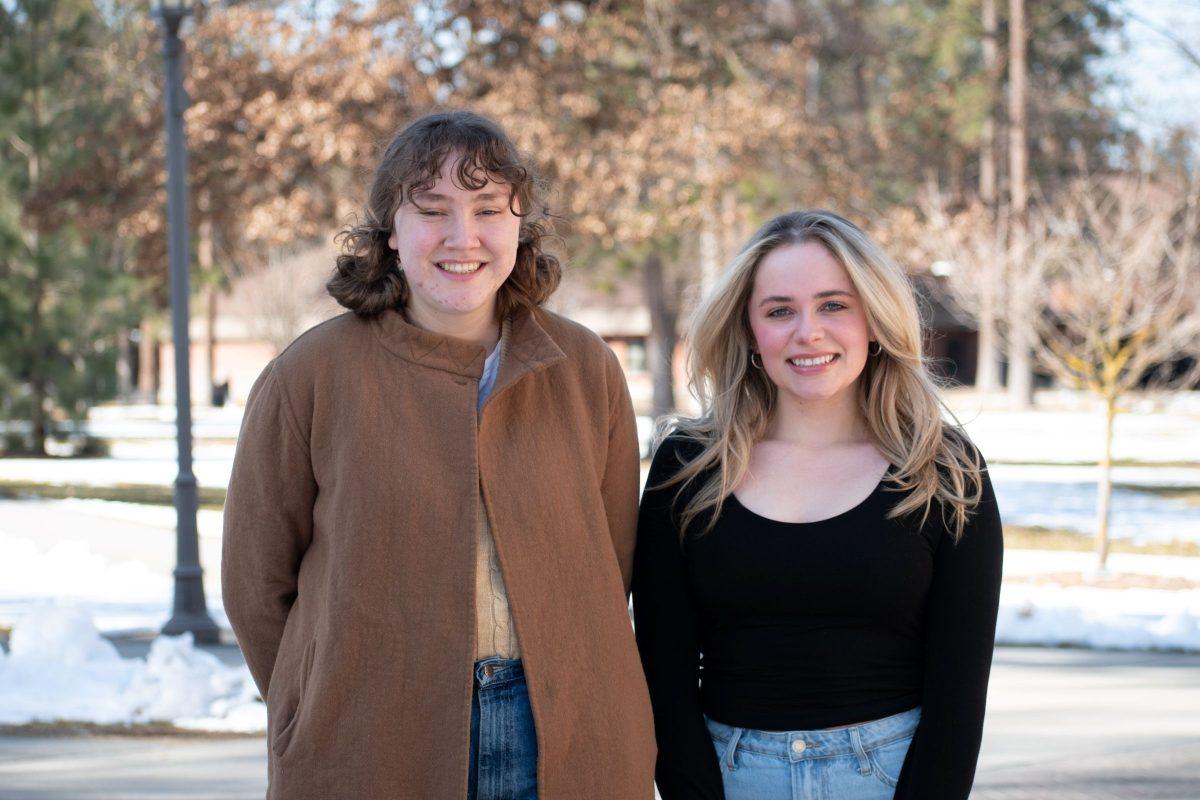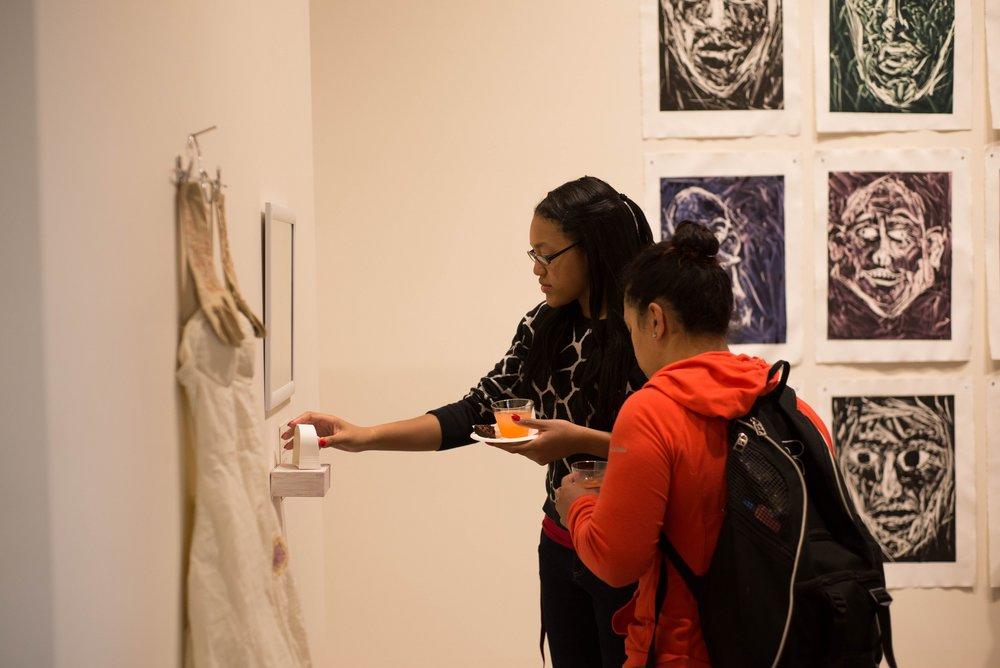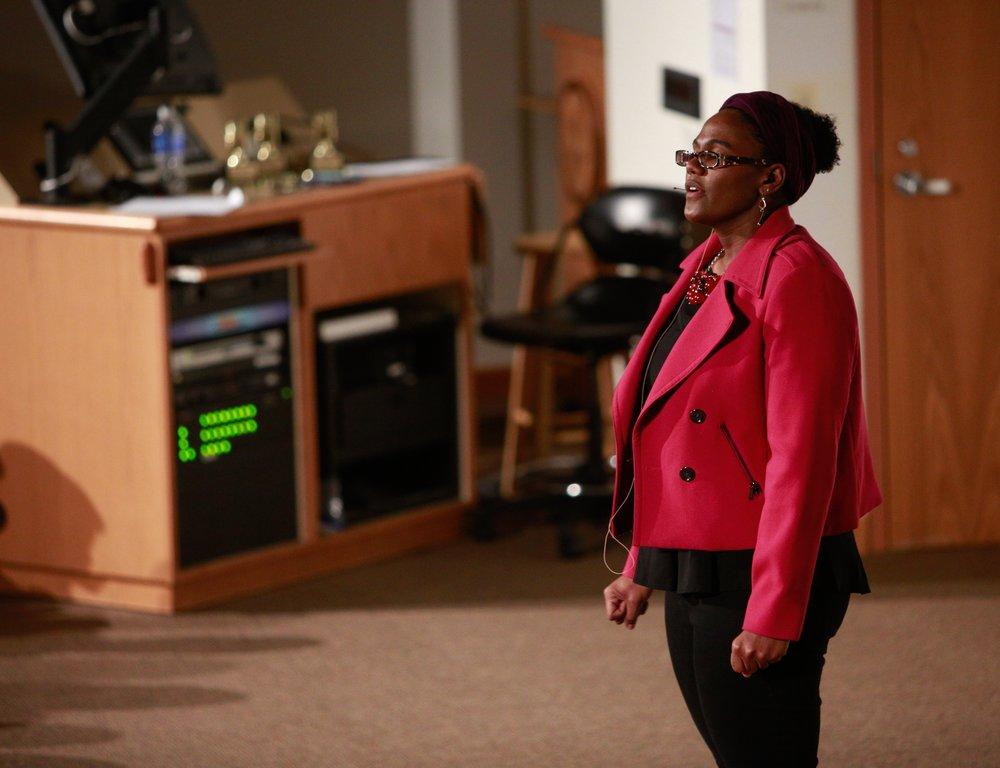Students, faculty, local educators and community members gathered in Cowles Auditorium on Friday for a collaborative presentation titled “The World Needs All Kinds of Minds,” hosted by Whitworth’s Center for Gifted Education and the university’s special education department.
Among the five presenters was autism and animal welfare activist, Temple Grandin, Ph.D.The main focus of the event was to “provide strategies and practices to address the range of diverse needs of students,” according to event posters. Specifically, the presentation focused on twice-exceptional students: “students who are cognitively advanced, yet their talents may be overlooked due to a disability-often ADHD or an autism spectrum disorder,” according to the event posters.
“Temple is coming to provide educators knowledge about the ways that other kinds of kids think, [because] sometimes we think they think all alike, in the same way, and they don’t, and what she worries about is that students sometimes who are on the [autism] spectrum won’t have their talent developed, and many of them will have talent areas that they absolutely adore,” said Jann Leppien, the Margo Long Chair of gifted education and event coordinator. “Rather than fixing the child, putting a focus on the strength of the child. So that’s really what the conference is about for educators. The why is to bring recognition to the neurodiversity of the mind.”
Grandin is currently a professor at Colorado State University, and remains an active advocate for both animal welfare and students with disabilities. As an individual with autism, Temple presented her perspective on helping students who are on the spectrum, and the value of all different kinds of minds.
“Different kinds of people have different kinds of skills, like some people are visual thinkers–they’re very good at art and design,” Grandin said. “Other people are more the engineering and mathematical minded. You take a product like the iPhone: Steve jobs was an artist; he designed the interface, the more mathematically inclined engineers had to make it work, so when you swipe this and swipe this, it would actually work. That’s an example of needing the different kinds of minds.”
Approximately 300 educators came from around the Spokane area, and 250 students and faculty signed up for the day-long event. Grandin also spoke Friday evening, at North Central High School to a crowd of about 500 people. This presentation was called “Helping Different Kinds of Minds Be Successful.”
“This is really about different kinds of minds and how they can be successful and the focus is on families, who have kids on the spectrum, and how to help their child be successful,” Leppien said.
The Robinson Teaching Theatre was filled to capacity for Grandin’s final presentation, “Understanding Animal Behavior.” Approximately 250 people came to listen to Grandin speak. Among them were local farmers, cattlemen, FFA (Future Farmers of America) and 4-H kids. In two days, over 1,000 people heard Grandin present.
“The reason she is so doggone popular is she is one of the very first people that spoke out about being on the [autism] spectrum, and being bright, and that it is not such a disability, it’s actually a gift,” Leppien said.
Grandin and Leppien first met at a conference 20 years ago where Leppien was speaking about kids advanced for their grade and Grandin was speaking about children on the autism spectrum.
Since then, Leppien has invited Grandin to numerous conferences. Leppien works in Whitworth’s Center for Gifted education, which works with students, educators and the university’s special education department to navigate the complexities of students who are on the spectrum or have disabilities, but are also very bright.
“Life is too hard to have people beating us up for what we can’t do,” Leppien said. “I’d rather we spend our time on what we can do, and so we have a tendency to be very strengths-based, what are you good at, what do you love, make that your life goal.”
Grandin mentioned the tendency for people to look at what others can’t do repeatedly during “The World Needs all Different Kinds of Minds”.
“I want you thinking about this; people get too hung up on the labels, the words of the label,” Grandin said. “We’ve got to start looking at what a kid can do. I want to see kids be everything that they can be, we’ve got to emphasize what the kid can do, build up on areas of strengths.”
“My favorite overarching theme of her presentation was getting rid of the labels, and just really practicing inclusion, thinking more about the individual, instead of their diagnosis,” junior elementary education major Kendall Todd said.
Grandin discussed the different types of thinking and processing. She discussed bottom-up versus top-down processing, auditory versus visual thinkers, and best practices for teaching.
“I sometimes see way too much of that in education; they want to ram every kid into the same theory and that doesn’t work,” Grandin said. “You see the thing is, one size doesn’t fit all. I want to see kids that think differently, to be successful and get into good careers.”
There are many resources available online for people looking for more information about Grandin and her work. Grandin has also written books, her most recent book being “The Autistic Brain,” which talks about the neurological differences of people with autism and how to best nourish those differences.
Contact Kailee Carneau at [email protected]


